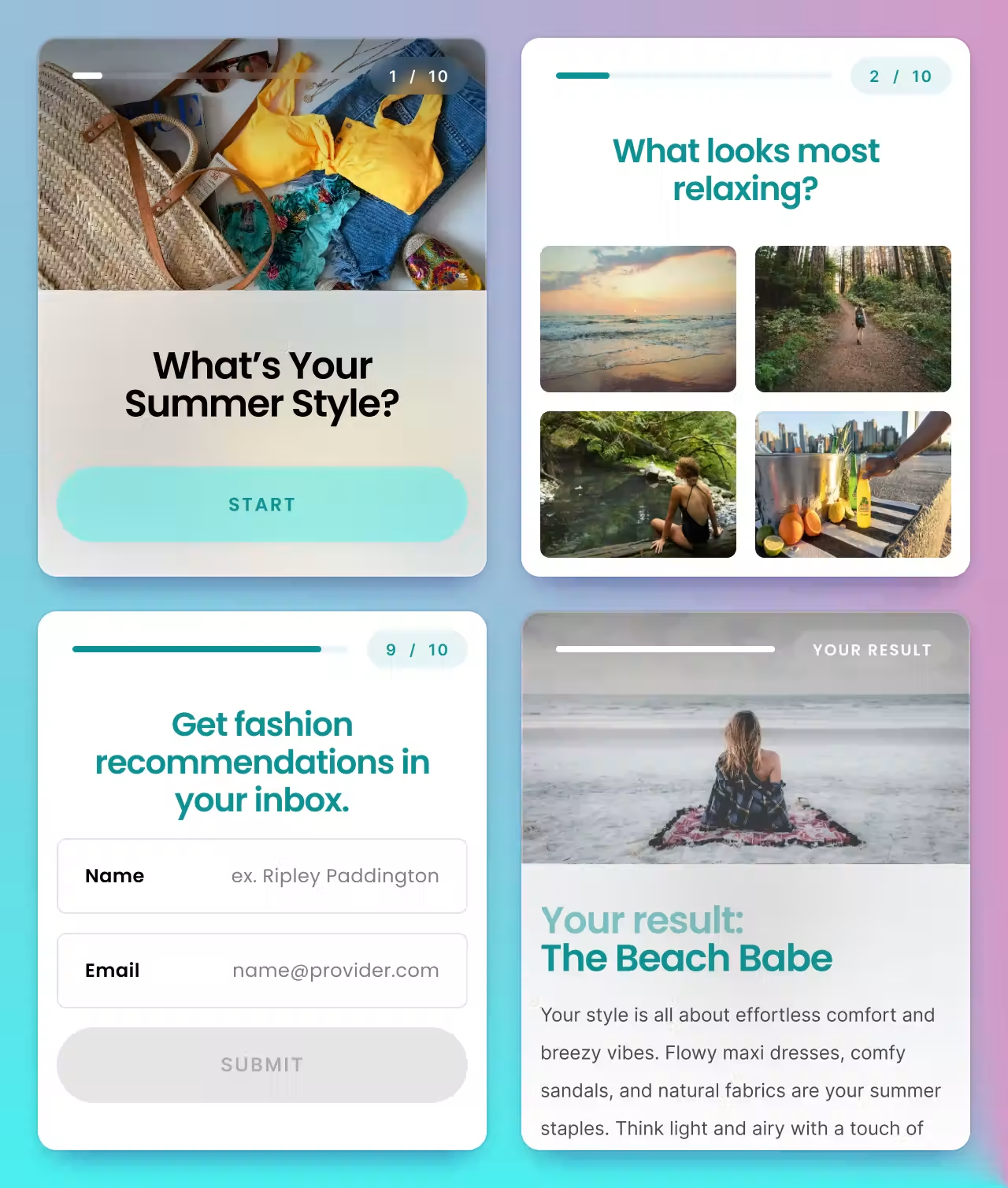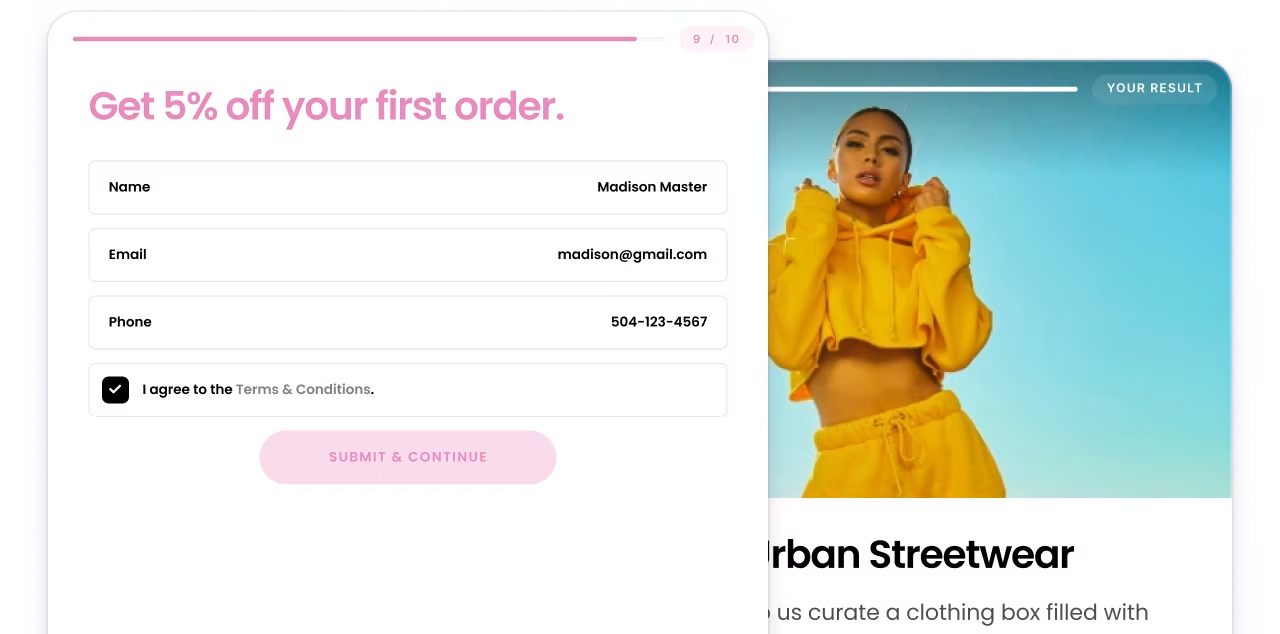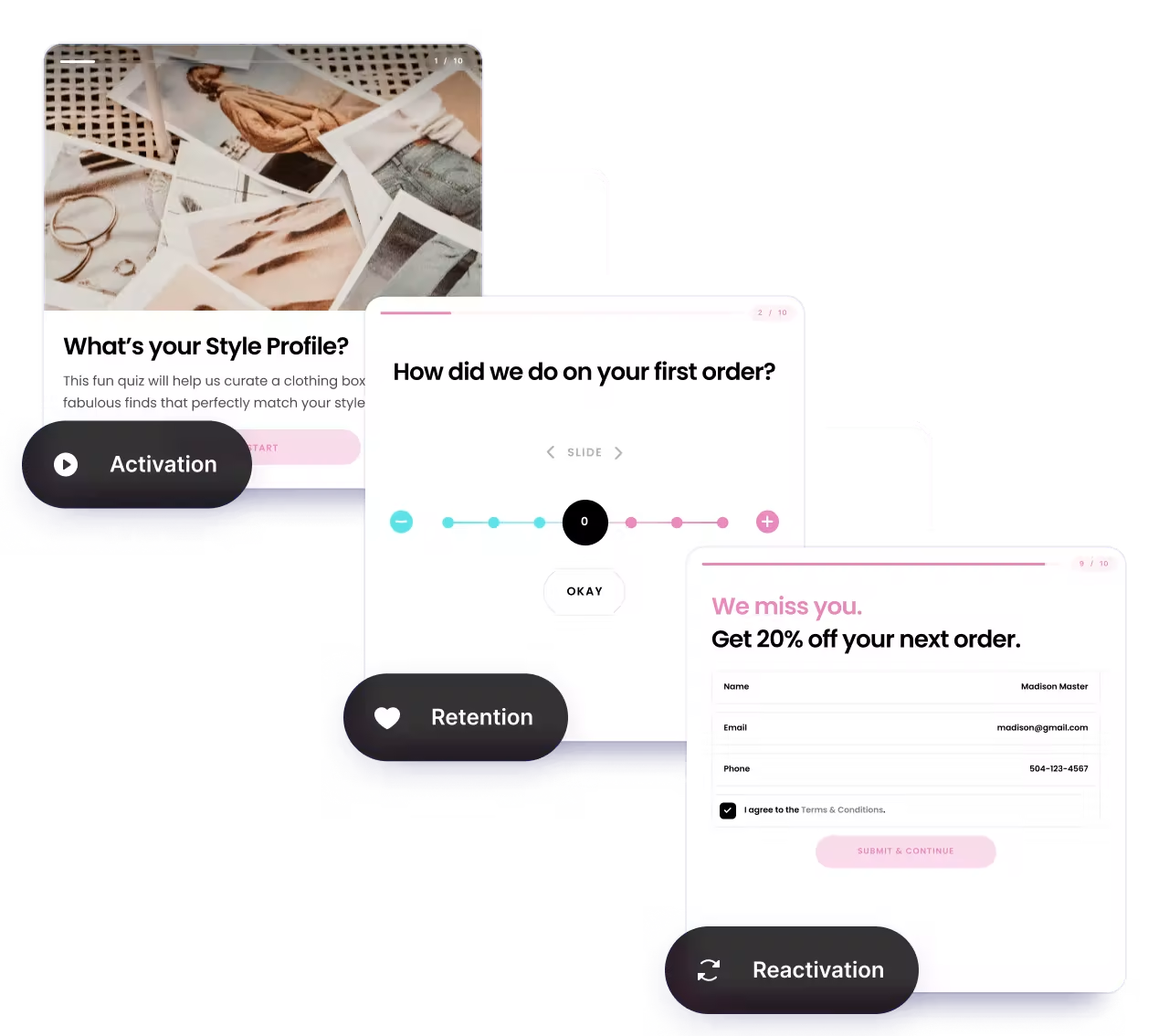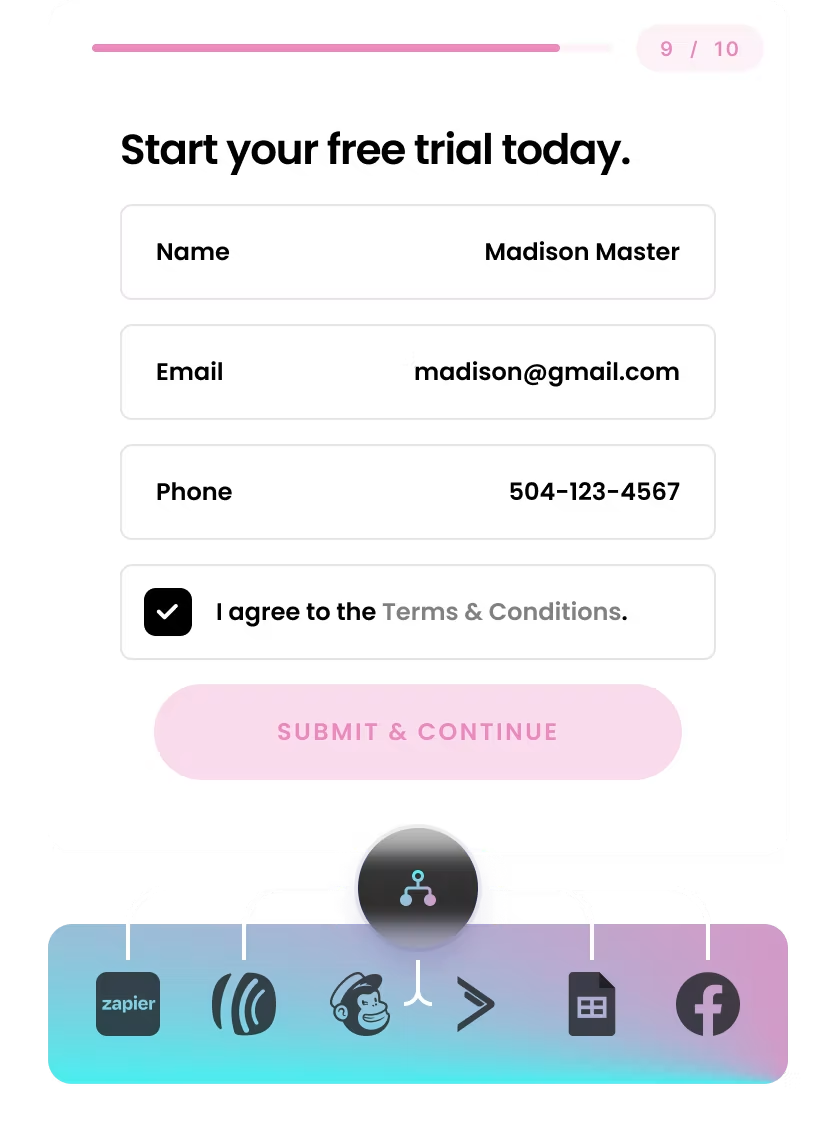
Generate high-quality leads
With Riddle’s interactive content, you can generate, organize, and convert more high-quality leads.

How Riddle generates better leads
People are more reluctant to share data these days. This makes getting leads trickier, with traditional methods (like pop-ups) becoming less effective.
But when users engage with Riddle’s interactive content, they’re more likely to share information. And by creating targeted, personalized content, you’ll attract high-quality leads.

How Riddle can help your business today
Engage high-quality leads
Create fun, interactive content that engages the right users and turns them into high-quality leads.

Get leads through strategic form placement
Add a lead form at any point in your quiz. In a recent experiment, we achieved a lead opt-in rate of 43% by placing the form just before quiz results.

Create content that converts leads
Leverage Riddle at each point of the sales funnel to generate high-quality leads and convert more new customers.

Send leads to any marketing tool
Riddle connects to any marketing tool, so you can send leads categorized by your own tags and segments.

What our clients say


Choose from over 15 interactive content formats
Try it for freePersonality quizzes

Quizzes

Sponsored content

Surveys

Polls

Product recommendations

Competitions & raffles

Game predictors

Leaderboards

Listicles

Personality quizzes

Quizzes

Sponsored content

Surveys

Polls

Product recommendations

Competitions & raffles

Game predictors

Leaderboards

Listicles
